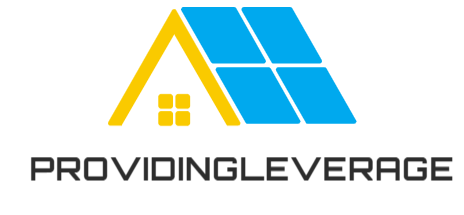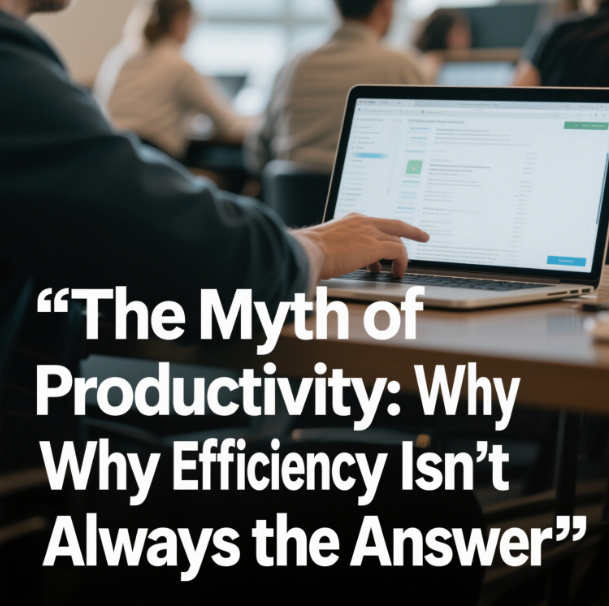In a world increasingly obsessed with optimization, productivity has become the modern holy grail. We’re flooded with tools, apps, and hacks promising to help us do more in less time—faster emails, tighter schedules, streamlined workflows. But in chasing efficiency, are we losing sight of the bigger picture?
The truth is, productivity isn’t the cure-all we often believe it to be. In fact, it can sometimes mask deeper issues, like unclear priorities, burnout, or the absence of meaningful work. Let’s unpack the myth of productivity and explore what actually makes our time—and our lives—worthwhile.
The Productivity Trap
We’ve all felt it: that rush of satisfaction after crossing items off a to-do list, the illusion of momentum that comes from staying “busy.” Productivity promises progress, and in some cases, it delivers. But when the pursuit of efficiency becomes the end rather than the means, we fall into the trap of mistaking motion for meaning.
You can process 200 emails in an hour, automate your calendar, and reply to Slack messages in record time—but if all this is in service of goals that don’t align with your values, then what are you really accomplishing?
Efficiency without intentionality can become a treadmill. You’re moving, yes—but are you going anywhere that matters?
The Problem with Measuring Output
Modern productivity metrics often reduce human effort to output: words typed, meetings attended, hours logged. But real value isn’t always quantifiable.
Consider the deep thinking required to solve complex problems, the unstructured time needed for creative insight, or the emotional labor involved in mentorship or leadership. These aspects of work are hard to measure—and therefore often undervalued—despite being crucial to long-term success and fulfillment.
In trying to squeeze more out of every minute, we risk starving the very processes that make meaningful work possible.
Where Efficiency Fails
- Creativity
Creative breakthroughs rarely happen on command. They thrive in space, not schedules. Over-structuring your time can choke the serendipity that creativity needs. - Human Connection
Genuine relationships—at work or in life—aren’t built on efficiency. They require presence, patience, and sometimes even inefficiency. You can’t optimize your way into trust or empathy. - Reflection and Learning
Speed and reflection often live at odds. When you’re racing through tasks, there’s little time to pause, question, or adjust course. Yet growth often comes from those quiet moments of introspection. - Well-Being
Burnout is the body’s response to prolonged imbalance. A perfectly productive calendar that ignores rest, movement, or mental space is a recipe for exhaustion—not success.
Redefining What Matters
The alternative isn’t laziness or chaos—it’s intentionality. Instead of asking, How can I do more?, a more powerful question is, What actually matters?
Start by identifying your essential work—the projects, relationships, and activities that align with your values and long-term vision. Let those become your compass.
When you focus on what matters most, productivity becomes a natural side effect, not the goal. You move with purpose, not pressure.
Embracing Deep Work Over Busy Work
Cal Newport, in his book Deep Work, champions the idea that focused, undistracted effort on meaningful tasks is where real value is created. It’s the antithesis of shallow busyness—those endless cycles of checking messages, attending meetings, and reacting to whatever’s loudest.
To escape the myth of productivity, we must make peace with doing less, but doing it better. That means carving out time for deep work, saying no more often, and resisting the urge to fill every minute with activity.
Toward a More Meaningful Rhythm
Imagine designing your days not around maximum output, but around fulfillment and impact. Your calendar might include fewer tasks but more focus. Your goals might shift from completing projects to growing through them. You might move slower—but with more intention.
Productivity isn’t evil, but it’s not sacred either. It’s a tool—a means to an end, not the end itself. Used wisely, it can support a life of depth, connection, and contribution. Misused, it can become a distraction from what truly matters.
Final Thoughts
The myth of productivity lies in its promise: that if we just optimize enough, we’ll finally feel complete. But no app or hack can substitute for clarity of purpose or a sense of meaning. Efficiency has its place, but it’s no replacement for living intentionally.
So take a moment. Step off the treadmill. Ask yourself—not what more can I do, but what should I be doing at all?
Because the ultimate productivity isn’t about how fast you go. It’s about heading in the right direction.




